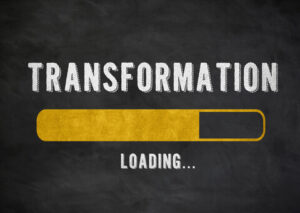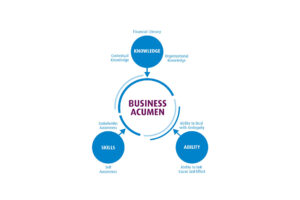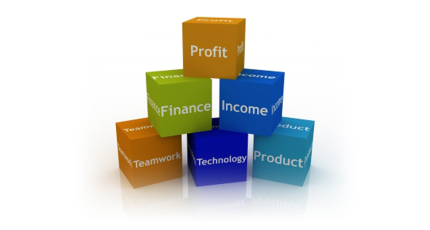Game design
Using gamification to enhance the experience and magnify the learning and development potential.

Using game elements to explore new situations, develop new skills, and create new connections.
Put the fun back into development activities.
Game Design: Gamification
Gamification is one of the key trends within the field of learning and development. But exactly what is it and can it be used to address the issues you face within your organisation?
One definition of the word gamification is ‘The use of game elements and game design techniques in non-game contexts.’
At Elgood we have been applying game design techniques to organisational challenges for over 50 years. We have never used the word gamification, but it is at the heart of what we do, taking an organisational problem, identifying what would need to change to overcome the problem and creating a game or simulation to convey core messages and influence behaviour.
We believe people learn most effectively when they are relaxed and are able to experiment with ideas. So, it’s no surprise that most of our work involves experiential learning, the cycle of experimentation, experience, reflection and conceptualisation.
To this cycle, we add a variety of game elements to create engagement, free participant’s imagination and help them enter a state of flow. The state that exists when a person is so absorbed in what they are doing that the activity becomes all-encompassing.
Game Design: Gamification With Purpose
Initially the term gamification was introduced to apply exclusively to video games it now covers many different types of games using the whole spectrum of formats. Anything from a pack of cards to a complex Virtual Reality simulation.
At Elgood we believe the standard game elements of points, badges and leader boards (PBL’s) need to be used sparingly. Our focus is on understanding the core objective, creating the right degree of challenge, the game needs to be not too hard and not too easy and highlighting the meaningful choices individuals can make within their own environment.
It’s relatively easy to create a game that is fun but if it’s to be effective then it needs to convey information and encourage new ways of thinking and behaving.
Take a look at this book ‘Gamification for business’. This book is a collaboration between over 22 game designers covering 5 countries. As well as a chapter looking at seven organisational challenges there are 21 examples of how a business game has been used to tackle issues by the contributors. It includes contributions from Elgood.
Game Design: Application
Issues we have helped organisations address include:
- Communicating new strategic goals to increase staff understanding and enable them to adjust their actions and decision making.
- Building commercial awareness so staff understand the actions they need to take to maximise organisational success.
- Explaining ‘how the organisation works’ so new recruits have a real understanding of the business they are joining.
- Supporting students to develop ‘work ready’ skill to supplement their technical and academic skill.
- Highlighting the difference in capabilities and thinking required for those stepping into a management role.
Whatever your issue business simulations are a powerful way to observe people exhibiting their natural approaches to team working, leadership, conflict handling, problem solving and more.
Whatever the outcomes individuals get value from the experience and feedback and management get objective reports on behaviour and performance.
Frequently Asked Questions
What is a business simulation game?
The term business simulation game covers a wide range of activities, anything from a card based face to face activity to an interactive online one. It is used to refer to business focused activities deigned to develop business acumen and management focused activities designed to improve the way in which an organisation is managed. Our thinking has evolved to define a business simulation game as:
“A device through which individuals learn about how businesses and organisations work, and which enables them to improve their performance within their organisation through the development of business and/or inter-personal skills.”
The device offers participants a safe environment in which they can make decisions, experience consequences and understand the relationship between the two. It usually focuses on a problem area in which a better outcome could be achieved if people know more or behaved differently.
Some examples of the different types of simulation game can be found in our Ultimate Guide to Building Business Games and Simulations that Work .
What is a management game?
I will break this into two parts. The word game is used to describe activities in which some, or all, of these characteristics are prominent:
- Human, or humanly controlled, opponents, whose actions have an effect, upon each other and upon the environment.
- An emphasis on competitiveness and ‘winning’.
- An emphasis on pleasure, humour and enjoyment.
- A repetitive cycle of making decisions and encountering a result, allowing the hope of improvement and of ‘doing better next time’.
The addition of the word management indicates a focus on planning, management and control of any organisation or project in circumstances where profit is not the dominant measure of success.
What is a business management game?
A business management game is one that focusses on the planning, management or control of an organisation with an industrial, commercial or financial background.
Please also see our answer to ‘what is a management game’.
What is Experiential Learning?
This refers to learning that an individual derives from experience. The term comes from the book Experiential Learning: experience as the source of learning and development published by David A Kolb (Englewood Cliffs, Prentice Hall, 1984).
In the book Kolb explained how a person learns through a cycle of discovery and experience. The Kolb learning cycle has four stages.

In situations where it is difficult for people to gain live experience the use of games and simulations can be used to mimic reality. The activity provides the active experimentation and concrete experience and the individual can then learn through reflective observation and abstract conceptualisation with the potential of going around the circle again to test out their new-found knowledge.
Retention rates from activities that incorporate experiential methods result in significantly higher retention rates – 75% from practice by doing in comparison to 5% from a lecture.
Research by National Training Laborotries.
How can a simulation game help my business?
Targeted business simulation games are designed to improve knowledge and develop understanding about the business, which in turn leads to more efficient and effective organisations. For your staff members to be effective they need to understand how your business works, what it takes for the organisation to be successful and, crucially, what contribution they need to make to ensure it is operating effectively and efficiently.
A business simulation is one of the most effective learning processes you can employ. The experience develops participants’ business acumen, helping them to understand what the extent of their contribution is, and raising awareness of how their decisions, behaviour and attitudes affect their colleagues. They will learn to make better decisions for the organisation and form better relationships, giving you a more effective, motivated and knowledgeable workforce.
What are the benefits of a business simulation or management game for my participants?
Business simulations and management games promote learning in a stimulating way. They encourage commitment and engagement from every participant, and the hands-on activities improve confidence and skills across the board. Everyone benefits from learning by doing and the lessons really stick. Your participants will experience the impact of their decision-making, whether good or bad, in a risk-free environment. Working as part of a team your participants will also hone their cooperation and communication skills thus improving their management capability, and participants in managerial roles will learn how the component parts of a system are linked, empowering them to make informed decisions which benefit the whole organisation.
What are the benefits of a business simulation or management game for my facilitators?
Business simulations and management games are interactive and engaging. They increase energy levels and enable your facilitators to assess the competence of the participants. Have they really grasped the important facts and concepts? Will they know what they have to do back in the real world? Your facilitators will also be able to observe individual behaviour and group dynamics as they take part in the simulation game. Do the participants have the skill to convey the new ideas to their teams and work colleagues, and will they be able to implement any changes or adjustments required?
Complementing your other training activities the simulation game adds an extra delivery method into the training mix to suit different learning styles and, a bespoke simulation game will be highly relevant to your organisation, so your facilitators will benefit from being able to draw on real examples and experiences to bring the ideas to life and ensure the learning is applicable to your participants.
A business simulation game will be the highlight of the training event, providing a structured focal point which has your key learning embedded within it.
How can simulation games enhance my training event?
We gather feedback from every management game and business simulation we design and run. Here’s what our clients say:
- Active learning keeps our people involved in the whole process.
- Simulations draw out everyone’s strengths across the group.
- Learning by experience is fun and interactive, engaging all the senses.
- Role-playing fosters negotiation and problem-solving skills.
- Business-specific simulations add real relevance to our events.
- Our participants retain new information better.
“the increased retention over time of learning appears to be one of the most consistent findings within the research into the potential of games for learning”
Simon Egenfeldt-Nielsen of the University of Copenhagen
Can a Business Simulation Game help me assess the skills and capabilities of individuals?
Business simulation games can be used as part of both formal and informal assessment activities. If you have a clear understanding of the competencies required and how these would be demonstrated, you can create a checklist to allow observers to assess individuals while they are participating in an activity. A similar checklist can be used by the participants themselves to reflect on their behavior after the event.
Business simulation games can be used as part of a recruitment, induction, development or assessment process.
Read our Warwick case study
Read our assessment or development centre page
How can business games be used in induction?
All organisations have a structure and processes for their activities. A game can be used to familiarise new employees with both the structure and the process of the particular organisation. For example, this is a board game which provides new employees joining a shipping company with the process for the main business and also the department (structure) of the business.
I want to use a business simulation or management game where do I start?
Contact us to set up an initial no obligation meeting over the phone or face to face. We will listen carefully to your requirements and make suggestions as to how we can take your project to the next stage. Following the meeting we will confirm our understanding of your requirement and offer some initial ideas free of charge.
How much will a business simulation or management game cost me?
Every client has specific needs, different participant numbers and varying timescales. We will give you a firm quotation early on in the consultative process, and guarantee that your reusable bespoke simulation will deliver an excellent return on your investment.
How much time will it take me to set up the game or simulation?
From initial consultation to delivery, typically between two weeks and three months depending on the type of product required. Our skills in needs analysis mean we get to the heart of your issue very quickly.
What resources will I need to run an Elgood game or simulation?
This depends on the type of simulation you select. For example, participants and/or facilitators may need access to a computer or the web, but in some cases the requirements may be as simple as pen and paper, and a time commitment from each participant.
Can I get help setting up the game or simulation?
When we design a simulation game for you, you are involved in the whole process and will gain a good understanding of how everything works. You can ask us to help facilitate the first event to help you find your feet, run a ‘train the trainer’ session, or provide ongoing facilitation support. If you purchase one of our off the shelf products we will help you to determine the best way to use it, depending on the complexity of the package, we can also provide facilitation assistance.
Is there an off-the-shelf business simulation or management game that would work for me?
If your goals are to develop business acumen, increase commercial awareness, promote teamwork and enhance decision-making skills, take a closer look at the Way Forward and Lawn Trimmers.
The Way Forward is a fast-moving and challenging business simulation delivering valuable insight into the mechanics of running a business. Developed by us to expose participants to the diverse pressures and challenges of the competitive commercial environment, the simulation tests players over a series of ‘half years’ as they make commercial, cultural and strategic decisions which will make the difference between success and failure. Teams are pitted against each other and strive to achieve the highest share price as the game develops.
Lawn Trimmers is also set in the business world but with a different focus. Participants have to assess the market and set up a factory based on their assessment of market demand and competition. Their objective is to achieve the best return on capital employed by balancing their initial investment with market demand and correctly identifying which of the commercial decisions they can make will attract the highest number of customers.
We offer both these simulations with facilitation either face to face or using a virtual medium.
Do I need to employ a consultant to use an Elgood game or simulation?
Many of our games and simulations can be used by a competent manager who has, themselves, benefited from management training. They can be used by trainers working for an organisation or on a freelance basis to reinforce ideas included in their own training materials. If we believe facilitation assistance might be useful, for example for some of our business simulations, we provide this service.
Insights
White papers
More and more businesses are turning to business games and simulations to...
In this white paper we explore three universal challenges every business faces...
The financial crisis prompted boardrooms to reevaluate their view of reputation and...
This White Paper discusses Ethics in Business Decision Making. An organisation is...
Organisational change is ubiquitous. According to the CIPD, “All organisations are in...








